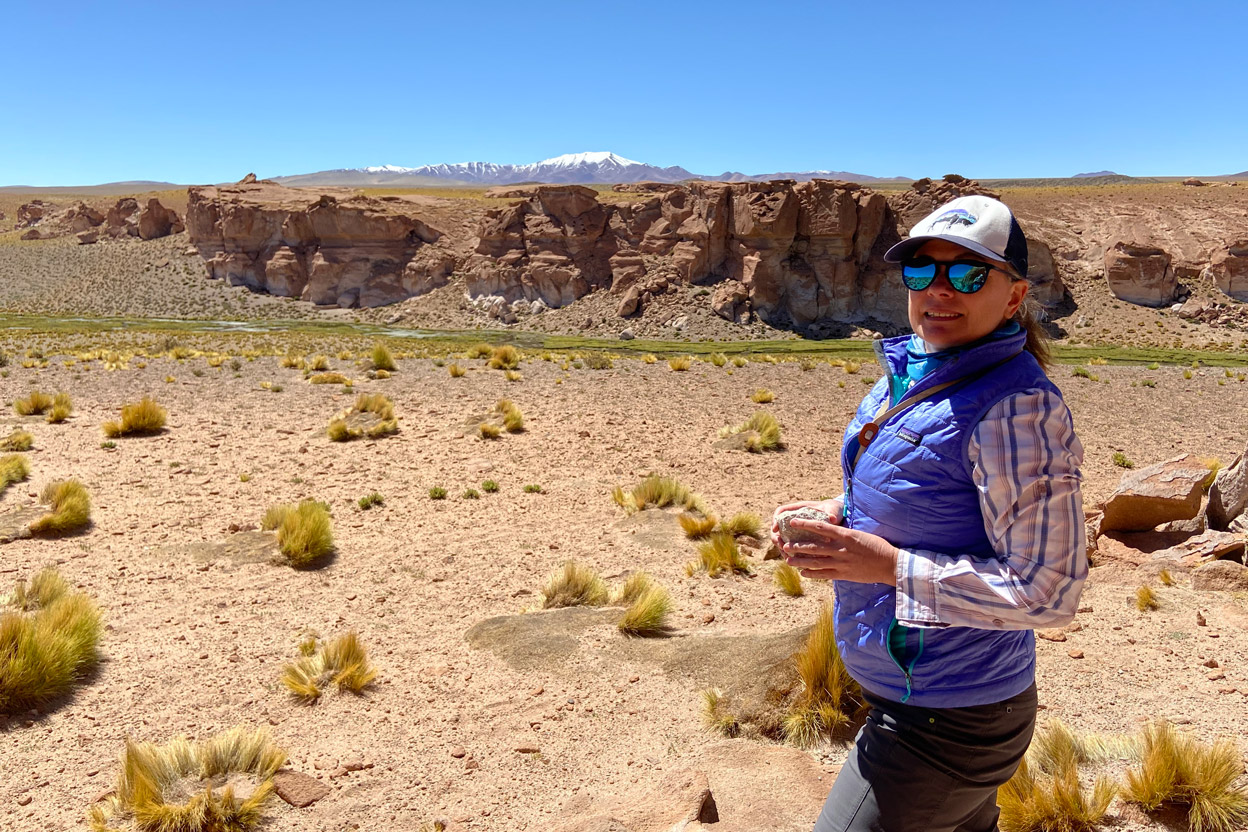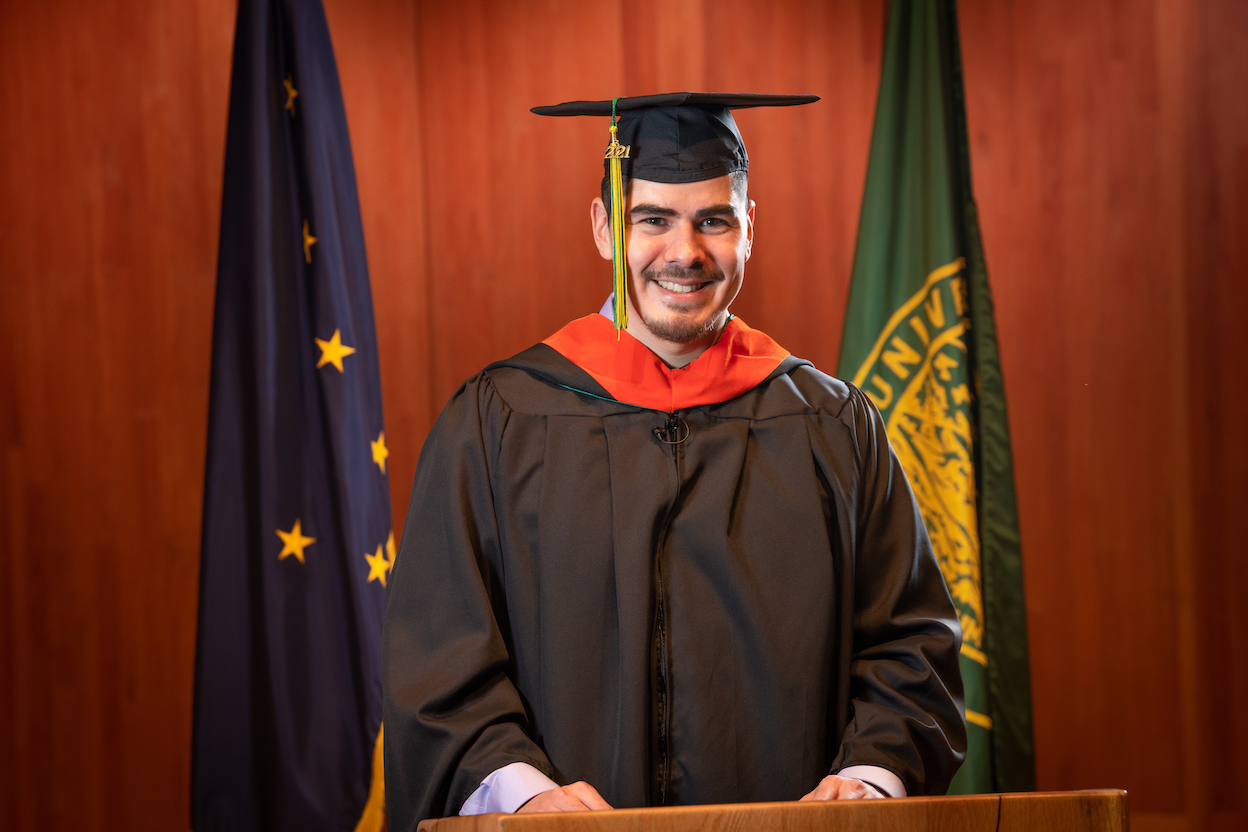BMW Group and UAA team up to research sustainable lithium extraction
by Matt Jardin |

In the race for automobile manufacturers to sustainably develop electric vehicles, lithium-ion batteries are the key. To cross the finish line, the BMW Group has invited UAA geological sciences professor LeeAnn Munk, Ph.D., along for the ride.
As Earth’s lightest metal, lithium is used in several manufacturing applications including ceramics and glass. But what lithium is more known for is its role in the production of lithium-ion batteries. Lithium-ion batteries are extremely desirable because of their high recharge capacity and the fact that they provide a stable source of power.
Two-thirds of the world’s lithium reserves are found in Latin America. However, there is a lack of scientific research into how lithium extraction impacts the region. The BMW Group intends to fill this gap with the study it had commissioned together with the co-financing partner BASF SE.
Joining Munk as co-principal investigator on the study is David Boutt, Ph.D., University of Massachusetts Amherst geosciences professor and one of Munk’s frequent collaborators. Rounding out the team are four Ph.D. students and one undergraduate student.
Munk and her team have been involved in hydrogeochemistry research in North and South America for over a decade, including the only produced lithium brine in North America and the Salar de Atacama lithium brine deposit in northern Chile. Munk and her team have published an array of scientific articles on their work and are now recognized as global leading experts on lithium brine deposits and more recently are developing expertise in emerging domestic deposits including clays and oilfield brines.
“The issues surrounding resource development — both from an environmental perspective as well as locating, identifying and extracting resources — are important on a global scale,” said Munk. “The projects I've been involved with here in Alaska revolve around other types of natural resource extraction — primarily more traditional metals such as copper and zinc. But the fundamentals of my expertise in geology, geochemistry and hydrology translate to many mineralized environments on a global scale."
The focus of the work initiated by BMW Group and BASF SE is focused on investigating the impacts of lithium extraction on the hydrologic environment in Latin America. Many of the locations where lithium is extracted from brines occur in arid to hyper-arid regions. Munk notes this status identifies a greater potential to experience ecosystem disruption because most of the freshwater in these systems is located underground and can be as old as 10,000 years, necessitating the need for this project.
Beyond this important sustainability project funded by the auto and battery industries, the U.S. has recognized the importance of securing a reliable domestic supply chain of lithium to support the electric vehicle revolution. The type of research Munk leads is at the center of existing and emerging domestic lithium deposit characterization, which is the starting point of producing these deposits.
“We have the opportunity to use the best science possible to help provide a basis for all stakeholders to use to understand these environments and to help companies make the best decisions about where they source their supply from, so it has global implications,” said Munk.
 "BMW Group and UAA team up to research sustainable lithium extraction" is licensed under a Creative Commons Attribution-NonCommercial 4.0 International License.
"BMW Group and UAA team up to research sustainable lithium extraction" is licensed under a Creative Commons Attribution-NonCommercial 4.0 International License.













